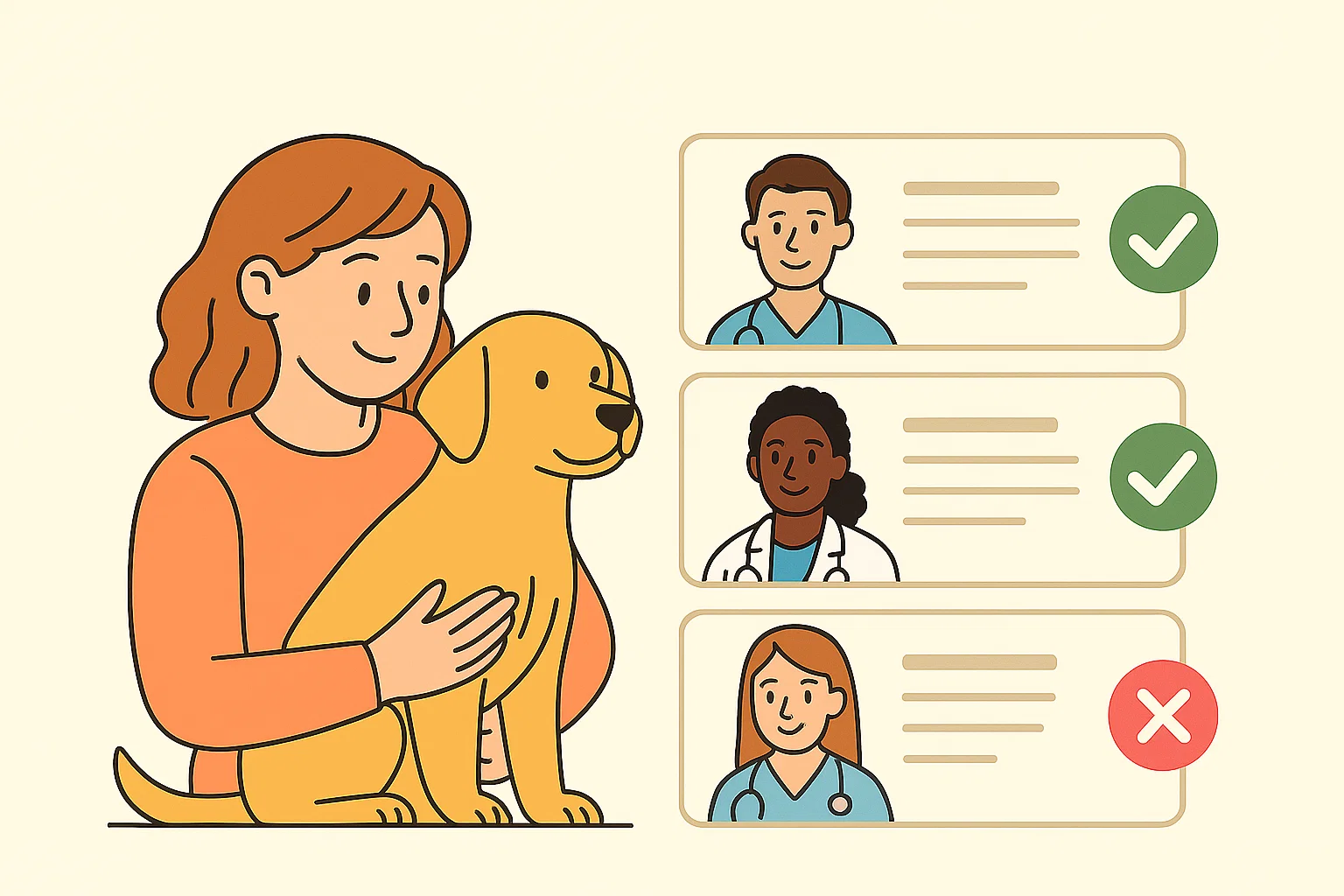Bringing a pet into your life means making a long-term commitment to their health and well-being. Choosing the right veterinarian is one of the most important decisions you will make. Your vet will be your partner in ensuring your furry (or scaly or feathered) friend lives a long, healthy, and happy life. But not all veterinary practices are the same, and your needs might vary depending on your pet, lifestyle, and expectations.
This guide will walk you through what to look for in a veterinarian and the essential questions to ask before entrusting your pet to their care.
Why choosing the right vet matters
Much like a family doctor, a good vet doesn’t just treat illness—they help you prevent it. Routine examinations, vaccinations, dental care, nutritional advice, behavioural support, and emergency services are all part of the package. A veterinarian is often the first to spot a serious issue before it becomes life-threatening. That’s why your choice should be thoughtful, not last-minute.
Your vet should be:
- Skilled and experienced
- Compassionate toward animals
- Communicative and supportive with pet owners
- Aligned with your views on treatment, care, and budget
What to look for in a veterinarian
Here are key criteria to consider when evaluating a prospective veterinarian:
1. Qualifications and experience
Look for licensed veterinarians who are members of professional organisations like the Royal College of Veterinary Surgeons (RCVS) (UK), American Veterinary Medical Association (AVMA) (US), or equivalent in your country. This ensures they meet standards for education and ethics.
- You may also want to consider:
- How long they have been in practice
- Whether they specialise in certain animals (exotics, large animals, cats-only clinics, etc.)
- Ongoing education or certifications in specific fields (e.g., dermatology, surgery, behaviour)
2. Clinic facilities
A clinic doesn’t need to be fancy, but it should be clean, well-organised, and equipped for both routine and emergency care. Look for:
- On-site diagnostic tools (e.g., X-ray, ultrasound, lab testing)
- Clean and comfortable waiting areas
- Separate dog and cat areas (minimising stress)
- Surgery and recovery rooms
- Emergency capabilities or referral networks
3. Compatibility with your pet’s needs
Not all vets treat all animals. A vet may be excellent with dogs and cats but have limited experience with birds, reptiles, rabbits, or exotic pets. Make sure the clinic:
- Sees your type of pet
- Has experience with specific breeds or conditions common to your animal
- Offers services like dental care, spay/neuter, wellness exams, microchipping, and behavioural advice
4. Location and hours
Convenience matters—especially during emergencies. Ideally, choose a vet:
- Within 20–30 minutes of your home
- With office hours that suit your schedule
- That offers after-hours or emergency services (or a reliable referral partner)
5. Staff friendliness and communication style
The way you’re treated matters. Your vet should be approachable and respectful. So should the receptionists, vet techs, and nurses. Ask yourself:
- Are they willing to explain things in plain language?
- Do they listen to your concerns?
- Are they gentle and compassionate with your pet?
- Do they follow up after visits?
- First impressions count, so trust your instincts when you interact with staff.
6. Cost transparency
Veterinary care isn’t cheap—but it also shouldn’t be mysterious. A good vet clinic will be upfront about:
- Pricing for standard procedures (vaccinations, dental cleanings, exams)
- Payment plans or financing options
- Insurance policies they accept
- Whether they provide written estimates before treatments
Cost shouldn’t be the only factor, but it’s important that you feel comfortable discussing finances.
See part 2 of this blog to understand the questions you might ask a prospective vet.
